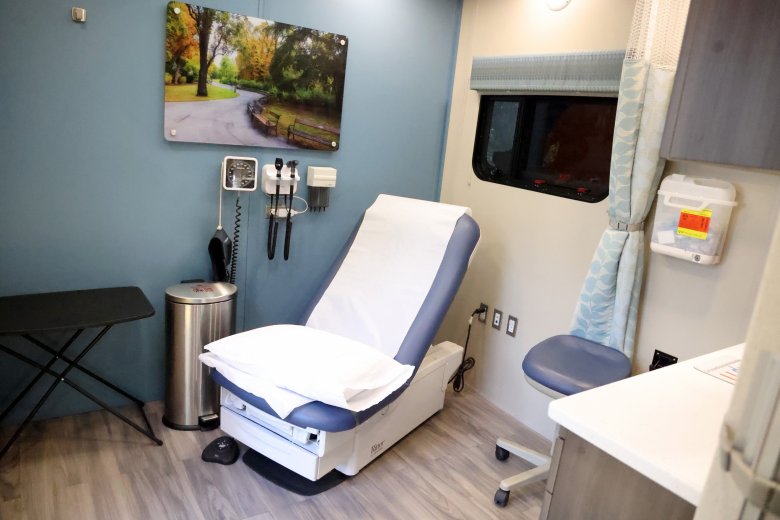Health
Maine’s Rural Hospitals Seek Support Amid Medicaid Cuts

Maine is poised to receive over $707 million from a new federal initiative aimed at supporting rural health care, but the effectiveness of these funds in preventing hospital closures remains uncertain. This funding comes from the Rural Health Transformation Fund, which is part of a broader federal allocation of $50 billion. According to the Kaiser Family Foundation (KFF), Maine will receive approximately $1,020 per rural resident, significantly higher than the national average of $588.
The state submitted its application for the funds, seeking enhancements in technology, medical equipment, telehealth services, transportation, and workforce development. Awards are expected by the end of the year, with funding set to commence in 2026. However, looming Medicaid cutbacks planned for 2027 could pose significant challenges, as KFF estimates a reduction of $137 billion in Medicaid funding for rural areas over the next decade.
Concerns have been raised about whether the new fund can adequately support Maine’s rural hospitals, many of which are already facing financial difficulties. For instance, the Northern Light Inland Hospital in Waterville closed its doors in June, and several hospitals have recently shut down birthing centers. The Center for Healthcare Quality and Payment Reform notes that half of Maine’s 24 rural hospitals are at risk of closure.
Experts caution that the new funding may not sufficiently address the ongoing financial challenges. Lisa Harvey-McPherson, vice president of government relations for Northern Light Health, described the federal regulations governing the fund as “quite disappointing,” citing limitations on how the funds can be utilized for hospital operations. She stated, “Health care in Maine in the next three to five years is going to look different. We won’t have the resources to sustain everything that we have.”
The $50 billion fund was included in a Republican budget bill at the request of Sen. Susan Collins, who, along with the rest of Maine’s congressional delegation, voted against the bill due to its overall Medicaid cuts. Collins acknowledged the fund’s potential benefits, stating, “The $50 billion fund will certainly help some of our rural hospitals survive during a very difficult time.”
While the funding is expected to support various initiatives, experts including Jeff Austin, vice president of government affairs for the Maine Hospital Association, emphasized that it is not primarily a hospital relief fund. Austin noted that the fund could support targeted efforts beneficial to both Maine hospitals and residents, but the limitations on its use are concerning.
Maine is projected to lose a staggering $5 billion in Medicaid funding over the next decade, a situation that will leave approximately 28,000 residents uninsured, according to KFF. The uncertainty surrounding the fund’s allocation and its potential impact on hospital operations adds to the anxiety felt by communities relying on these essential services.
Investment in capital improvements, medical equipment, and technology is crucial for rural hospitals, many of which struggle to fund necessary upgrades. Harvey-McPherson remarked, “When technology exceeds its useful life, we have to fix it. But hospitals are behind on their capital investments because cash has been so tight.”
While Maine stands to gain from the Rural Health Transformation Fund, uncertainty remains about how the funds will be distributed and utilized effectively. KFF experts have indicated that they could only project spending from $37.5 billion of the total fund, as the distribution plan for the remaining $12.5 billion has not yet been clarified by the federal administration.
Zachary Levinson, project director for the KFF Project on Hospital Costs, expressed skepticism about the fund’s ability to prevent closures and service cuts in rural health care. He highlighted that the funds are unlikely to cover general operating expenses, stating, “This is not like a bailout where we know exactly where the money is going and what it’s going to do.”
As the state anticipates the arrival of these funds, the overarching concern remains clear: the rural health care landscape in Maine is facing significant challenges that extend beyond the immediate financial support offered by the Rural Health Transformation Fund.
-

 Top Stories1 month ago
Top Stories1 month agoRachel Campos-Duffy Exits FOX Noticias; Andrea Linares Steps In
-

 Entertainment9 hours ago
Entertainment9 hours agoJayda Cheaves Claims Lil Baby and Ari Fletcher Had an Affair
-

 Top Stories2 weeks ago
Top Stories2 weeks agoPiper Rockelle Shatters Record with $2.3M First Day on OnlyFans
-

 Top Stories2 weeks ago
Top Stories2 weeks agoMeta’s 2026 AI Policy Sparks Outrage Over Privacy Concerns
-

 Sports2 weeks ago
Sports2 weeks agoLeon Goretzka Considers Barcelona Move as Transfer Window Approaches
-

 Top Stories2 weeks ago
Top Stories2 weeks agoUrgent Update: Denver Fire Forces Mass Evacuations, 100+ Firefighters Battling Blaze
-

 Health2 months ago
Health2 months agoTerry Bradshaw Updates Fans on Health After Absence from FOX NFL Sunday
-

 Sports1 week ago
Sports1 week agoSouth Carolina Faces Arkansas in Key Women’s Basketball Clash
-

 Top Stories2 weeks ago
Top Stories2 weeks agoOnlyFans Creator Lily Phillips Reconnects with Faith in Rebaptism
-

 Top Stories1 week ago
Top Stories1 week agoCBS Officially Renames Yellowstone Spin-off to Marshals
-

 Top Stories2 weeks ago
Top Stories2 weeks agoOregon Pilot and Three Niece Die in Arizona Helicopter Crash
-

 Entertainment2 weeks ago
Entertainment2 weeks agoTom Brady Signals Disinterest in Alix Earle Over Privacy Concerns

